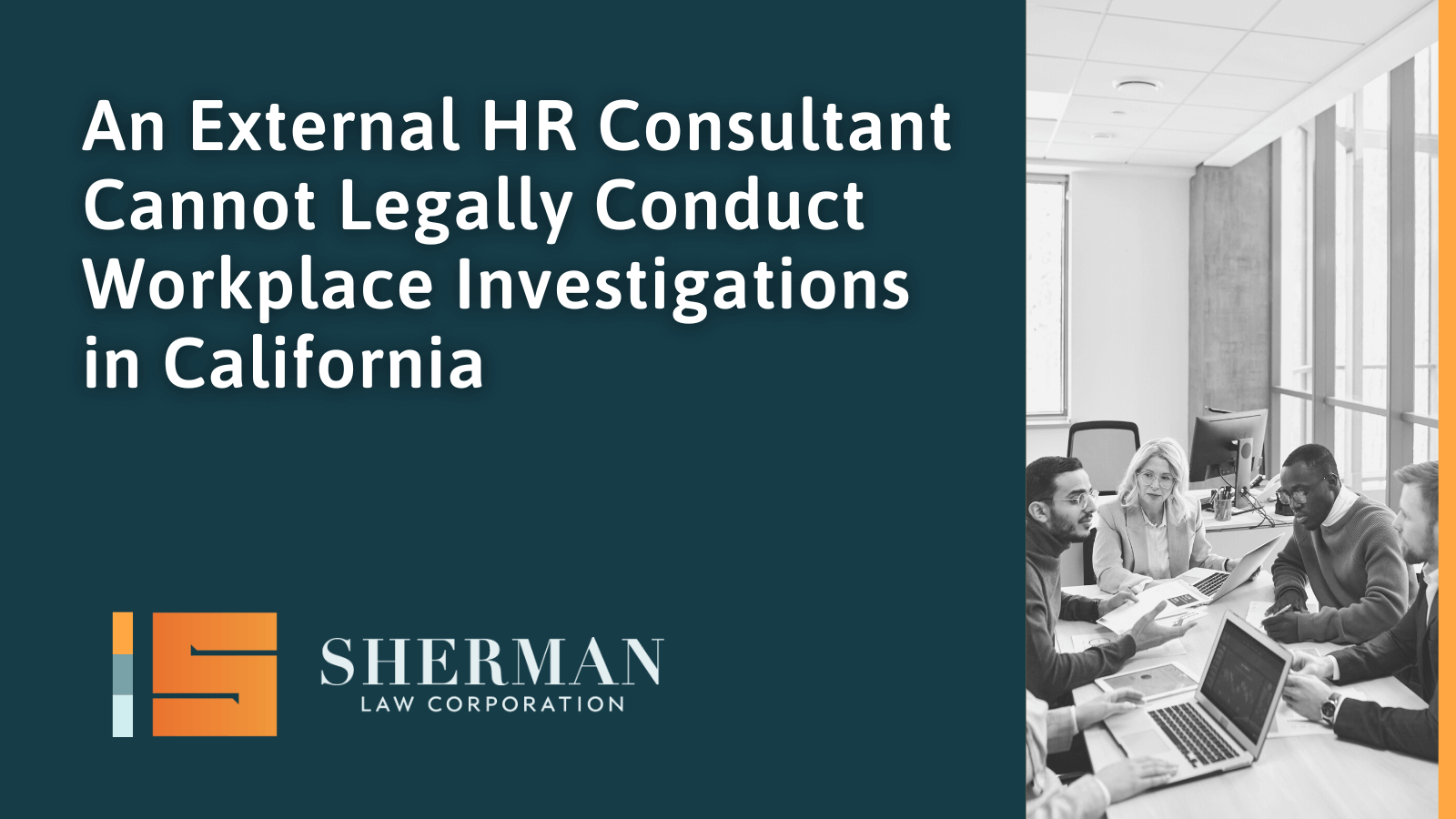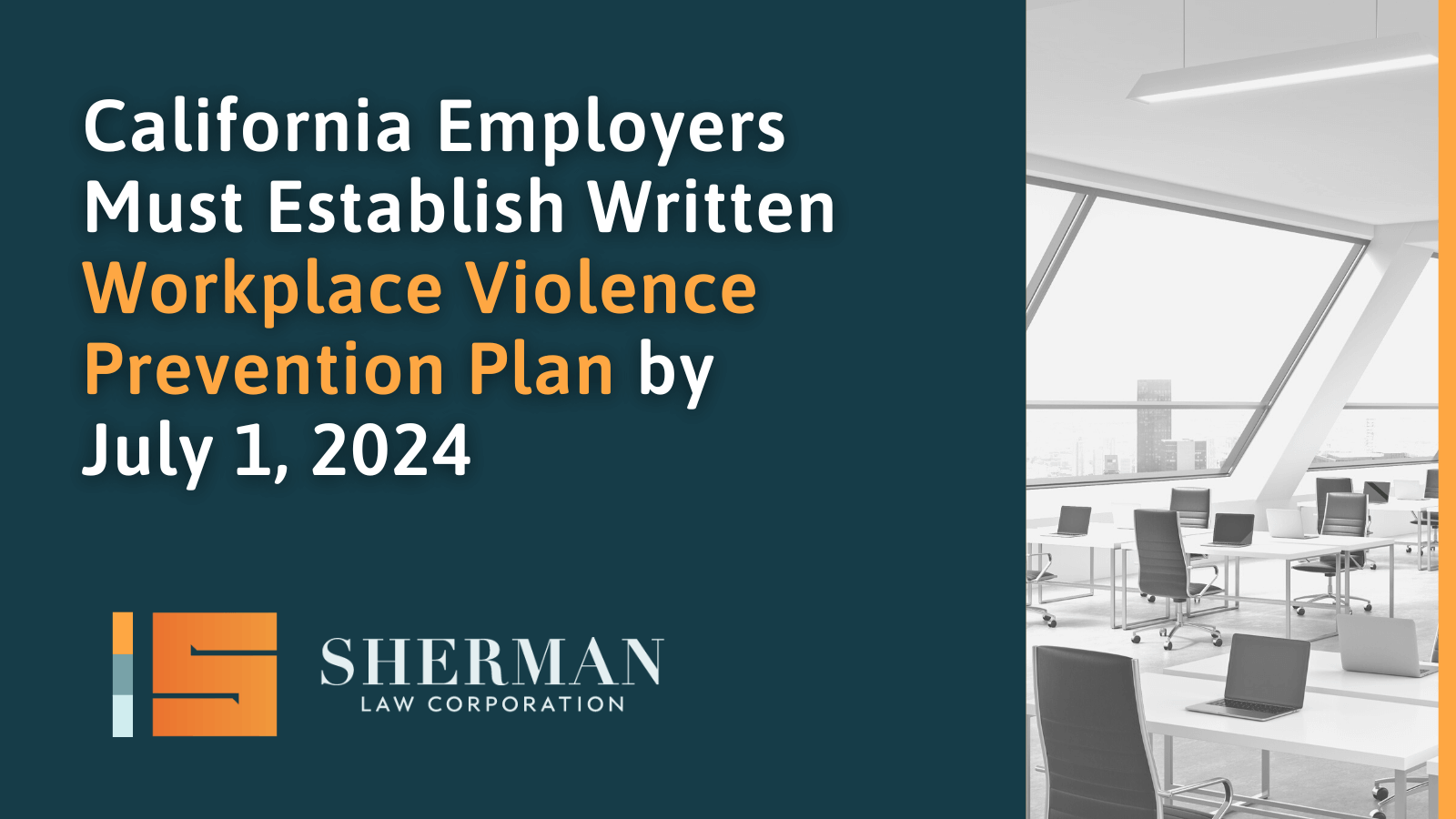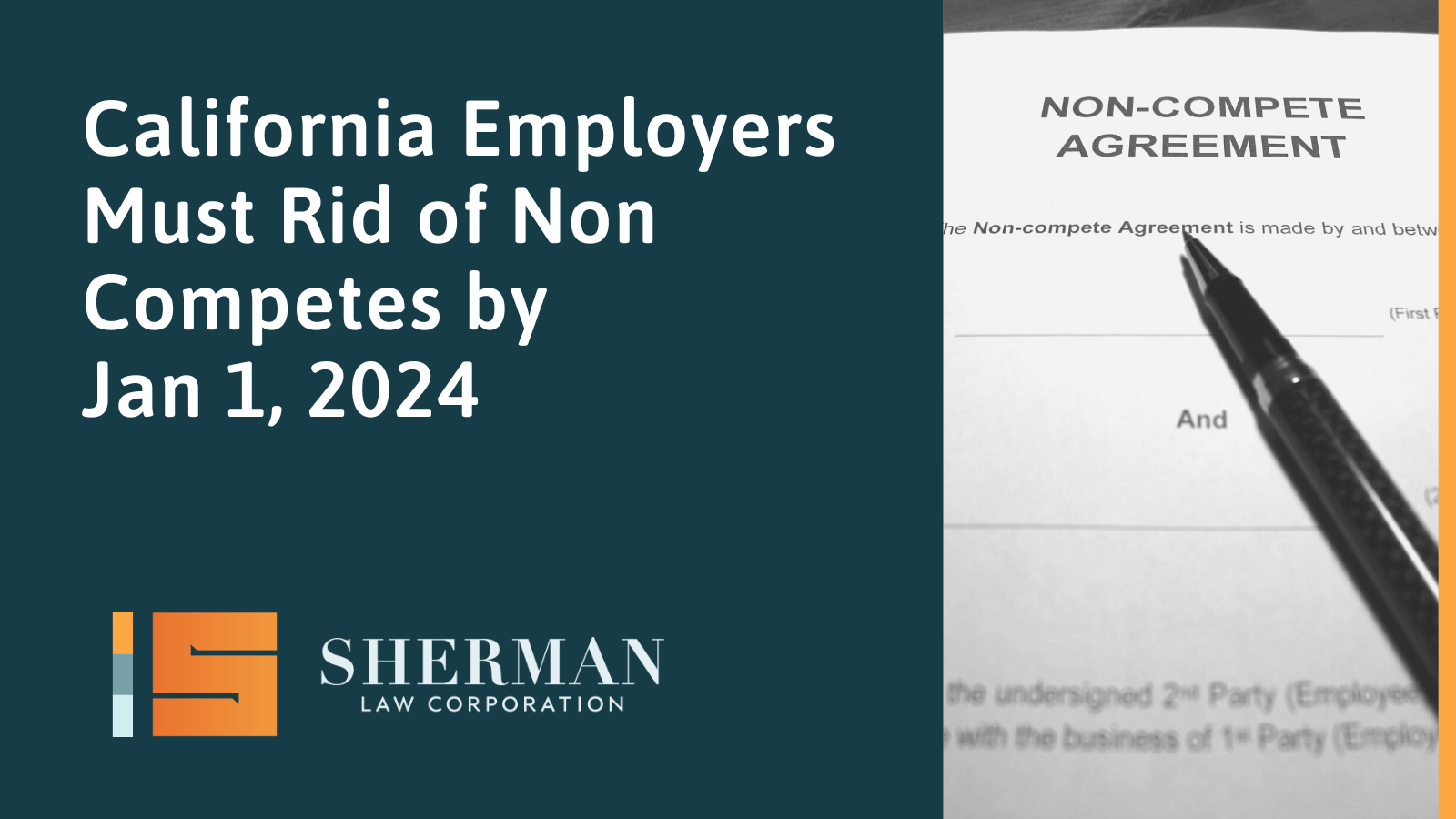
The California legislature has been busy passing new employment laws that become effective now and on January 1, 2023, that all California employers should not only be aware of, but update their handbooks, policies and practices accordingly.
Mandatory Bereavement Leave.
Effective January 1, 2023, AB 1949 makes it unlawful to refuse to grant eligible employees up to 5 days of bereavement leave upon the death of a “family member” (meaning, spouse, child, parent, sibling, grandparent, grandchild, domestic partner, or parent-in-law). The bill requires the leave to be completed within 3 months of the death. The leave may be unpaid, but employees can use other available PTO such as vacation, personal, or sick leave. The leave will only be available to employees who have worked for the employer for at least 30 days prior to the commencement of the leave. ** It is recommended that you update your Employee Handbooks.
Extended COVID-19 Supplemental Paid Sick Leave.
Effective immediately, AB 152 extends the use of COVID-19 supplemental paid sick leave through December 31, 2022 for employers with 26 or more employees. (The bill was originally set to expire on September 30, 2022). Although the time in which workers may use COVID-19 supplemental leave will be extended by three months, AB 152 does not provide additional leave time for those employees who previously exhausted their COVID-19-related leave time. Updated mandatory posting can be found here.
Pay Scale Disclosure Requirements.
Effective January 1, 2023.
- Employers with 15 or more employees must include in all job postings the salary or hourly wage range that the employer reasonably expects to pay for the position.
- Covered employers must provide employees with the pay scale for their current positions upon request.
- Employers must maintain job title and compensation records for each employee for the duration of their employment and for three years following their termination of employment.
- If a covered employer engages a third party to post, publish, or advertise a job posting, the employer must provide the pay scale to the third party to include in the job posting.
California Family Rights Act (“CFRA”) and Paid Sick Leave (“PSL”) Leave Can Now Be Used to for Care for “Designated Persons.”
Effective January 1, 2023.
- AB 1041 permits employees to take job-protected leave to care for a “designated person,” which means any individual related by blood or whose association with the employee is the “equivalent of a family relationship,” including a domestic partner.
- An employer may limit an employee to one designated person per 12-month period and may require the employee to substitute during this period any of the employee’s accrued vacation leave or other accrued time off or any other paid or unpaid time off negotiated with the employer.
- AB 1041 also expands the definition of the term “family member” under California’s paid sick leave (PSL) law to include a designated person. ** It is recommended that you update your Employee Handbooks.
Monkeypox Protections.
On September 13, 2022, Cal/OSHA issued guidance for employers on protecting workers from monkeypox under the Aerosol Transmissible Disease (ATD) Standard.
Protection for Off-the-Clock Cannabis Use.
Effective January 1, 2024, AB 2188 makes it unlawful for an employer to discriminate against a person in hiring, termination, or any term or condition of employment for
(1) using cannabis off the job and away from the workplace, or
(2) taking an employer-required drug screening test that detects non-psychoactive cannabis metabolites in an employee’s hair or urine, blood or other bodily fluids.
AB 2188 specifically allows employers to prohibit employees from possessing, being impaired by or using marijuana while on the job and to make employment decisions based on “pre-employment drug screening conducted through methods that do not screen for non-psychoactive cannabis metabolites.”
Employers may also still decline to hire an applicant based on a positive pre-employment drug test, as long as the screening is scientifically valid and conducted through methods that do not screen for non-psychoactive cannabis metabolites.
The law does not preempt state or federal laws that require applicants or employees to undergo testing for controlled substances as a condition of employment, receipt of federal funding or related benefits, or entering a federal contract, and it exempts certain applicants and employees (such as positions that require a federal background investigation or clearance).
Increased Health and Safety Posting Requirements.
On September 23, 2022, AB 2068 was enacted which expands employers’ existing obligation to post citations, orders and special orders issued by California’s Division of Occupational Safety and Health by now requiring that such notices be provided in any language spoken by at least 5% of workers at the place of employment, including temporary workers of a temporary employment agency or staffing agency working at the place of employment.
A violation of these provisions is enforceable by a civil penalty.
Employee Rights in “Emergency Conditions.”
Effective January 1, 2023, SB 1044 prohibits an employer, in the event of an “emergency condition,” from taking or threatening adverse action against any employee for refusing to report to, or leaving, a workplace within the affected area because the employee feels unsafe. The bill was amended to define “a reasonable belief that the workplace or worksite is unsafe” to mean a reasonable person, under the circumstances known to the employee at the time, would conclude there is a real danger of death or serious injury if that person enters or remains on the premises. Notably, the term “emergency” does not include a health pandemic. Violations can trigger civil penalties under PAGA.
Contact Lisa Sherman today
For more information on these new laws, feel free to reach out to Lisa Sherman at lisa@sherm-law.com or call (323)488-2087.




